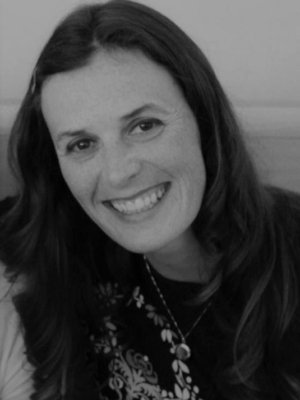Grief Is a Question
Grief, at its heart, is a question.
- What could I have done differently?
- Why why why why why why why why why why why?
- At Christmas, am I still supposed to cook the carrots with horseradish that no one else eats?
Or, rather, grief is many questions tumbling on top of one another.
- Is it normal that I wear Mom’s socks every day since she died just to feel close to her?
- Is it disrespectful to unceremoniously drop off garbage bags of her clothing at Goodwill?
- Am I responsible for her credit card debt?
Question is my grief language.
Question is also my love language.
My daughters are nine and seven. Their Mother Tongue is Question, but they speak their own dialect.
- When did I become your daughter?
- What is the opposite of a human being?
- Could you survive without something to do?
***
Grief is also memory.
My mother was larger than life. She was plus-sized and untamed in both body and spirit. Her light brown skin was dotted with freckles, and her wavy hair was coarse and unruly. She was the life of the party—crass with jokes and generous with pasta portions, wine pouring, and bear hugs. But when I was in third grade, she tried to take up less space. She started a SlimFast-style diet that was run as a pseudo-medical operation in a strip mall. The staff snapped a before photo of Mom in a brown, striped t-shirt, with her lips pressed together trying to smile, showing no teeth. Her weight was scrawled on the white edge of the photograph in black Magic Marker. The Polaroid hung on our refrigerator for months as motivation, while Mom dutifully ate one meal per day. For the other two meals: a shake. Vanilla-flavored powder packet and two cups of water in the blender. Pressing pulse with one hand, Mom used her other hand to cover the top so it wouldn’t splatter. Then she plugged her nose and swallowed the foul liquid as quickly as possible. On the shake plan, Mom did indeed become smaller.
***
Grief is the past crashing into the present.
This morning, on what would have been my mother’s seventieth birthday, I brushed my nine-year-old daughter’s thick, brown, shoulder-length hair while I sat on the closed toilet seat in our bathroom. My daughter’s nose is dusted with freckles and her curls are impossible to detangle, just like my mother’s were. While staring in the mirror at her own perfectly proportionate body, my child asked me: Am I too big?
Am I too big? No. No. NO. Not as an answer to the question. NO to questioning whether you take up too much space. No to anticipating how others will see you before you even fully see yourself.
Am I too big is another way of asking, Is there room for all of me in this world? My mother must have asked this question in multiple ways before she decided to die.
***
Grief is relentless.
Earlier this year, I had an interview for a hospice chaplain position. Before we both decided that I wasn’t a good fit for the organization, the pastor responsible for hiring asked me:
- What is the most challenging theological question you have ever been asked?
I tried to tell him about my children and their questions.
- What’s worser than death?
- How does a miracle actually work?
- Is a moment your whole life?
But he couldn’t hear me. I offered him a glimpse of what has held me together in the wake of deep loss, where certainty is a luxury I cannot afford. I have cobbled my questions together with duct tape and bailing wire and built a life raft. I tried to welcome him aboard for a minute, advocating for the power of the questions themselves. But he interrupted and wanted an answer.
Later in the interview, the pastor would warn me that people only get one death, and we don’t want to mess it up, by which I think he meant Jesus is the answer.
Meanwhile, my kids just keep asking and asking.
- If Jesus was already born a long time ago, why do we wait for him to be born every year?
- Where do people live after they die?
- How does light survive?
The questions are too big. The questions are enough.
Kiely Todd Roska is a hospice chaplain. She lives in Minnesota (on land first loved and stewarded by the Dakota people) where she spends her time wrangling and/or snuggling her spouse, two children, one dog, ten chickens, and thousands of bees. Her work has been published or is forthcoming in River Teeth, Prose Online, HerStry, Cleaver, and Read Magazine. kielytoddroska.com.





